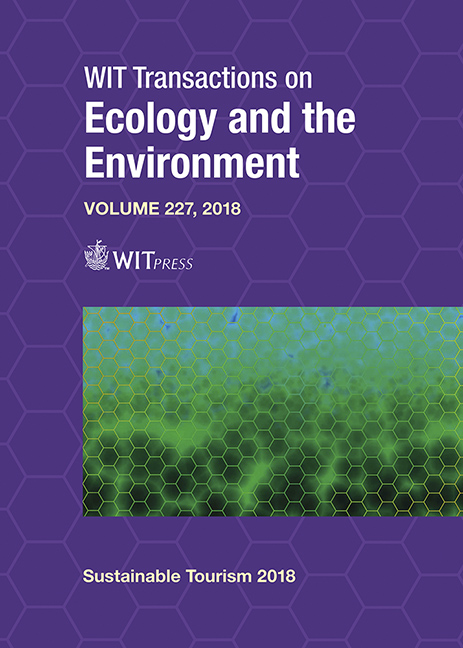RURAL TOURISM: CROSSROADS BETWEEN NATURE, SOCIO-ECOLOGICAL DECOUPLING AND URBAN SPRAWL
Price
Free (open access)
Transaction
Volume
227
Pages
9
Page Range
1 - 9
Published
2018
Paper DOI
10.2495/ST180011
Copyright
WIT Press
Author(s)
CECILIA ARNAIZ-SCHMITZ, LUIS SANTOS, CRISTINA HERRERO-JÁUREGUI, PABLO DÍAZ, FRANCISCO D. PINEDA, MARÍA F. SCHMITZ
Abstract
The development of cultural tourism has turned traditional rural landscapes, characterized by their great natural and cultural values, into focus of tourism attraction, causing important changes in the socio-economic structure of the regions containing them. The enhancement of this tourism highlights the need to design and implement a sustainable management that guarantees the maintenance and conservation of the landscape and the economic development of local populations. This study, localised in the Lozoya Valley (Guadarrama Mountains, Central Spain), analyses the socio-ecological situation of its municipalities and visitors in two different times. The analysis of its temporal evolution has allowed us to notice a marked socio-ecological decoupling characterized by urban sprawl, loss of traditional land-uses and practices and the rurality of local society. At the same time, a decrease is detected in the rural landscape valuation by visitors, increasing their preferences for naturalness. The conducted study is a novel contribution applicable to the conservative management of the landscape and the development of sustainable tourism for nature and society.
Keywords
conservative management, landscape dynamics, local socio-economy, multivariate analysis, rural tourism, sustainable tourism, typology of visitors





